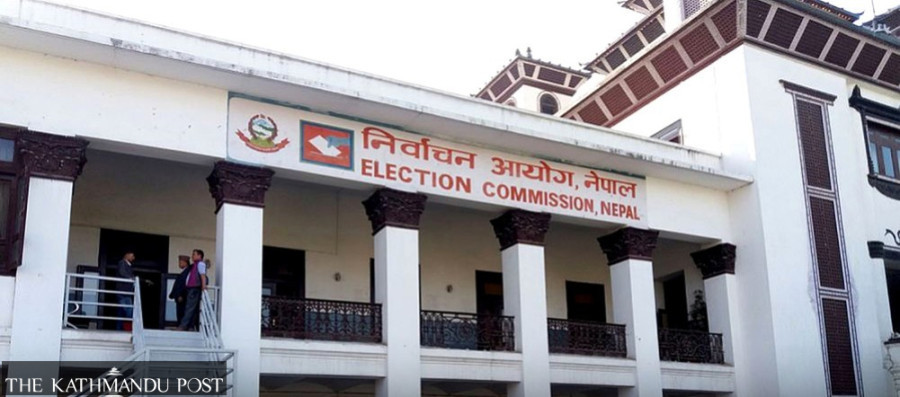National
Election Commission invites observers for March 5 polls
Both national and international observers should apply by November 12. They must submit proof of prior observation experience.
Post Report
The Election Commission has invited national and international election observers to monitor the parliamentary elections scheduled for March 5.
In separate public notices, the constitutional election management body has set November 12 as the deadline for the domestic and foreign observers to apply for overseeing the polls, which are four months away.
National observers willing to observe the elections in Kathmandu should apply at the commission’s central office, while those intending to monitor polls outside the Valley can register at the respective provincial offices of the commission. Organisations must produce proof of registration renewal and a copy of their statute. Those that monitored previous elections must also submit evidence that they submitted observation reports in the past. Organisations with experience observing elections outside Nepal may submit relevant documents.
“Organisations that violated the election code of conduct or failed to submit their observation reports in the past will not be considered,” reads the notice.
International observers can submit applications through email to the commission. These international monitoring agencies must provide evidence of registration in their respective countries and a history of election observation experience.
Election observation is common globally and helps ensure free and fair elections.
Unlike in the past, only four international observers monitored the November 2022 general elections. They included the Asian Network for Free Elections, SAARC Human Rights Foundation, Civic Chamber of the Russian Federation, and Initiative for Dialogue and Democracy, Denmark. The organisation from the Russian Federation was in Nepal for the first time to check the fairness and neutrality of the polls.
The European Union and The Carter Centre, which had long monitored Nepal’s elections, did not participate three years ago.
The number of the national observers, however, was higher. As many as 43 national organisations monitored the federal and provincial elections. They had mobilised close to 10,000 observers across the country, mainly on voting day.
As the March 5 elections are being held after a huge political shift, the commission is expecting more international observers this time. The Gen Z-led anti corruption movement on September 8-9, which resulted in the deaths of 76 people, ousted the KP Sharma Oli government, and led to the formation of the interim government.
On September 12, President Ramchandra Paudel appointed former chief justice Sushila Karki as the prime minister as suggested by Gen Z. The same day he dissolved the House of Representatives and announced the snap poll for March 5.
While some political forces have raised doubts over the timely holding of elections, the government has reiterated its commitment to holding them on schedule. During a tripartite meeting with political parties and different Gen Z groups on Wednesday, Karki had said her government will hold the midterm elections in the stipulated time.




 13.12°C Kathmandu
13.12°C Kathmandu













